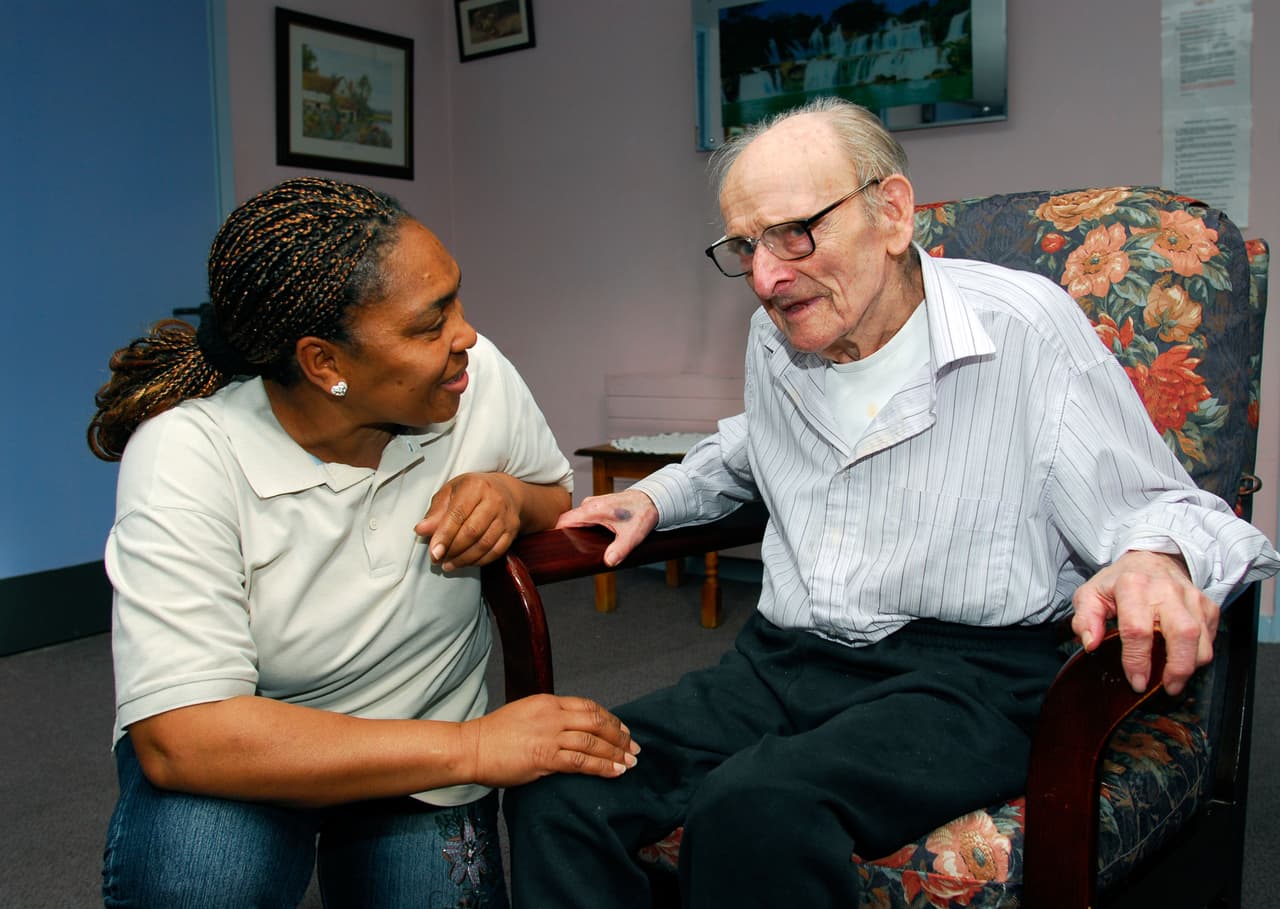
Ban on family members ‘will force migrant care workers into poverty’
Preventing overseas care workers from bringing their families to join them in the UK is a dehumanising move that will “sentence workers to destitution”, according to care workers and support organisations.
The policy is one of the measures to slash net migration that were announced by the home secretary James Cleverly this week. His proposals also include increasing the earnings threshold for those who want to bring foreign relatives to the UK, and refusing other types of skilled worker visas to those paid under £38,000.
For the past eight months, the Bureau of Investigative Journalism (TBIJ) has been speaking to migrant workers, not-for-profit organisations and employment rights experts to understand the inequalities and exploitation faced by those coming to the UK to work in the care sector. Many of those to whom we spoke planned to bring relatives with them, or had already.
There are more than 150,000 vacancies for social care workers in the UK. Care is the only industry which will be covered by the ban on family members, leading to criticism that the move is discriminatory.
“It's a distraction [and] does nothing to address the real problem of systemic exploitation,” said Dora-Olivia Vicol, chief executive of the Work Rights Centre, an organisation that supports migrant workers.
Vicol told TBIJ that the design of the visa, where sponsored workers lose their right to remain in the UK if they quit their jobs or are dismissed, prevents them from escaping exploitative conditions. Many workers are worried that if they blow the whistle on poor treatment, they will be fired and have to leave the country, or risk being deported.
She said: “The only thing that announcement will achieve is to break up families, scare workers and erode trust. And for those of them who actually depend on the salaries of dependants to survive, they are being sentenced to destitution.”
One of those people is Lakshmi*, 39, a carer from India who paid a recruiter nearly £20,000 for a job and a visa in the UK. She arrived in the UK in May with her husband and five-year-old daughter.
Despite repeated calls to the employer who sponsored her visa, Lakshmi was not given any shifts. Three months later, she was sent a letter saying she had been dismissed. Without her husband, who is working as a carer through a dependant visa, she would not have survived, she said. But even with his income, the family is unable to pay for some basics, such as their daughter’s school uniform.
Lakshmi said: “He is my backbone right now. If he was not there, I would not have anything. This is my request to the government – please do not stop the dependant visa.”
The Home Office confirmed that care workers’ relatives who are already in the UK will be able to stay after the rules are introduced next spring. However, it was unable to confirm what would happen when their visas came up for renewal.
One care worker from Zimbabwe called the announcement heartbreaking. She told TBIJ she felt she had been exploited twice, first by the government and then by her employer. She wants to bring her nine-year-old daughter to the UK, but despite her 40-hour contract she’s received only a handful of hours’ work each week, making it unlikely that she’ll be able to afford to bring her here before the rules change.
“Some people who are being affected are victims of circumstances. They don’t have money to bring children because the employer is enslaving them,” she said.
Parenting from a distance has made her feel like a failure, she told TBIJ. “It is also unfortunate that this policy will promote long-distance relationships which would have a negative impact on marriages and families. Because of poverty, parents would be forced to separate to survive.”
Migrants at Work provides legal support and advocacy to vulnerable workers facing exploitation and labour rights abuses. Its founder, Aké Achi, said: “For the government to ignore dependants of carers is cruel, inhumane and discriminatory.”
The latest government figures show 85,995 visas were granted to care workers and senior care workers in the twelve months to September 2023. Workers from India, Nigeria, Zimbabwe, Ghana, Bangladesh and Pakistan topped the list of those travelling to the UK to plug the labour gap.
The rise in net migration has been partly driven by the need to cover vital shortages in several sectors, including social care. However, Cleverly dismissed concerns that the changes could make care staff shortages worse, instead saying they would “curb immigration abuses”.
Nazek Ramadan, director at the migrant-led national organisation Migrant Voice, said: “This government, for all of its rhetoric, has not answered how they think in reality, rather than ideology, the infrastructure of this country can survive without immigration.
“So many people are scared for their futures right now. Families are terrified that they will be ripped apart. This is not a policy which is based on what is best for this country. It is a policy which is designed to dehumanise migrants and treat them as a resource rather than people.”
*Names have been changed to protect workers
Header image: A worker and an elderly resident at a care home. Credit: Paul Doyle/Alamy Stock Photo
Reporters: Vicky Gayle, Emiliano Mellino and Natalie Bloomer
Bureau Local editor: Gareth Davies
Deputy editors: Chrissie Giles and Katie Mark
Editor: Franz Wild
Production editor: Frankie Goodway
Fact checker: Billie Gay Jackson
Our reporting on insecure work is supported by the Joseph Rowntree Foundation and is part of our Bureau Local project, which has many funders. None of our funders have any influence over our editorial decisions or output.
-
Area:
-
Subject:




